Recent months have seen a sharp increase in the number of migrants and refugees at Italy’s northern borders. Even in winter, people head westwards across the snow-capped mountains towards France; many tell stories of being repeatedly turned back by the French police. On Italy’s eastern border, people who arrive on foot after travelling the ‘Balkan route’, making their way through woods and along trails, often complain of having been beaten by Bosnian or Croatian police.
While overall numbers of people are lower than a few years ago, the humiliations, violence, struggles and harassment experienced by men, women and children on their journeys have not changed. The only thing that keeps them going, despite all they have suffered, is the chance of finally reaching their destination.
Assistance from authorities is completely absent in the border cities; consequently, it is left to activists and volunteers to receive people in transit and provide them with humanitarian assistance and medical care, with the support of Doctors Without Borders/Médecins Sans Frontières (MSF). In mid-December, two MSF teams travelled to the main transit points in Ventimiglia, Oulx, Bolzano and Trieste and spoke to migrants and refugees on the move and the people trying to help them.
Here are some of their words, followed by MSF’s call to the Italian authorities to provide people with shelter, humanitarian aid and access to medical care in all border areas.
Ventimiglia
On the streets, along railway tracks, in abandoned buildings and on the beach: this is where migrants and refugees live in Ventimiglia after authorities closed the transit camp near the Roja River last July. Despite its shortcomings, the camp was a place to stay for people on the move. Now there is nowhere official to receive them. Voluntary groups and informal networks of activists provide 12 hours a day, seven days a week, hot meals close to the French border; it is thanks to their commitment that families with children can find a place to stay in the city.
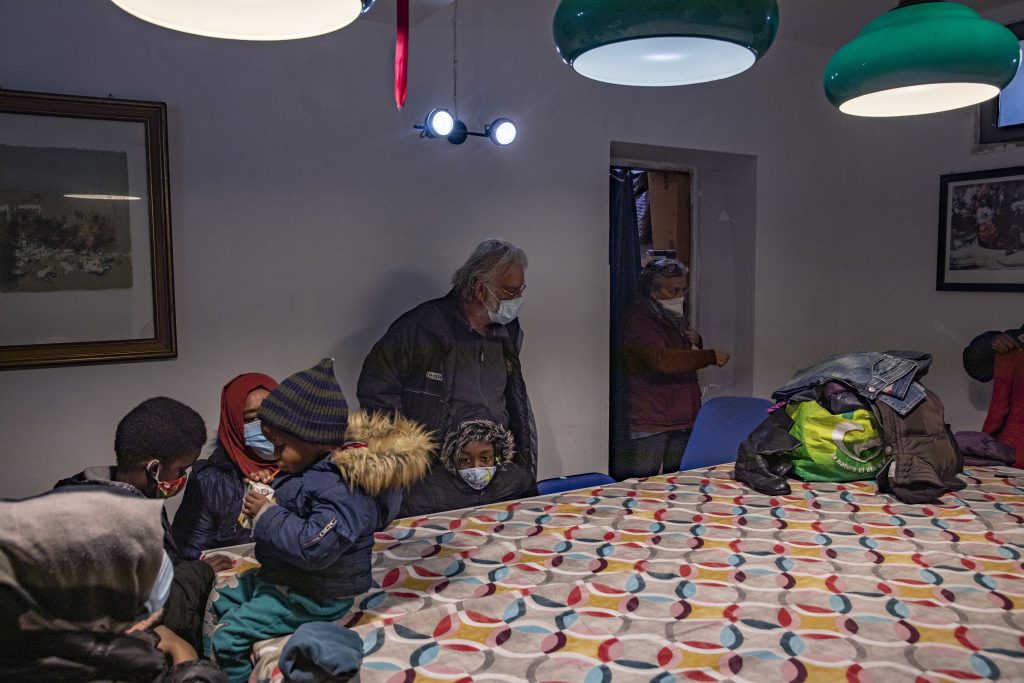
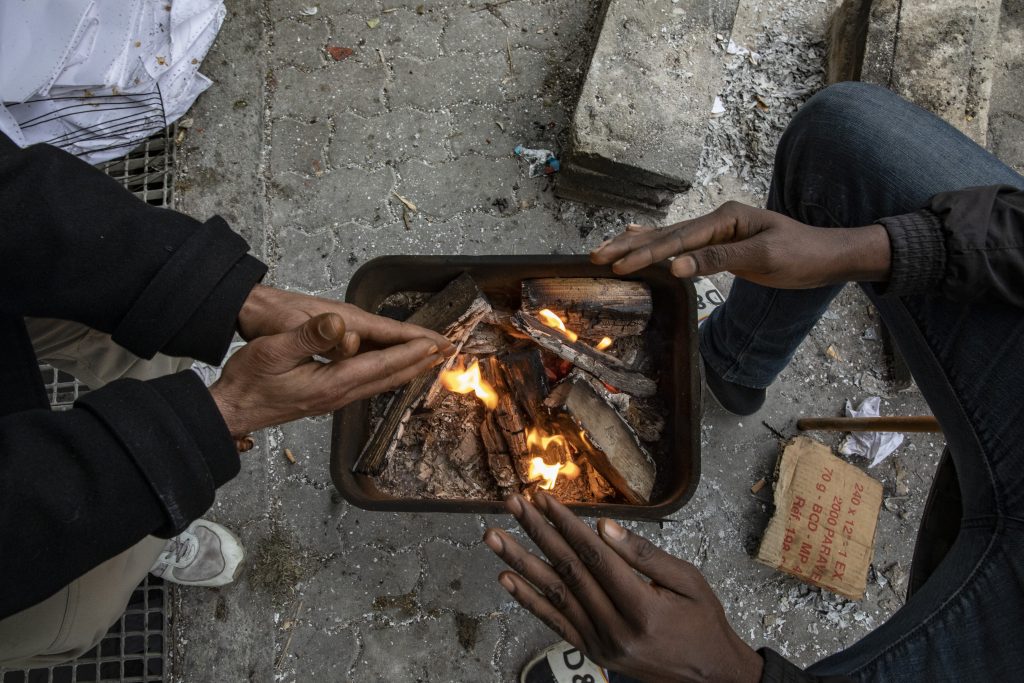
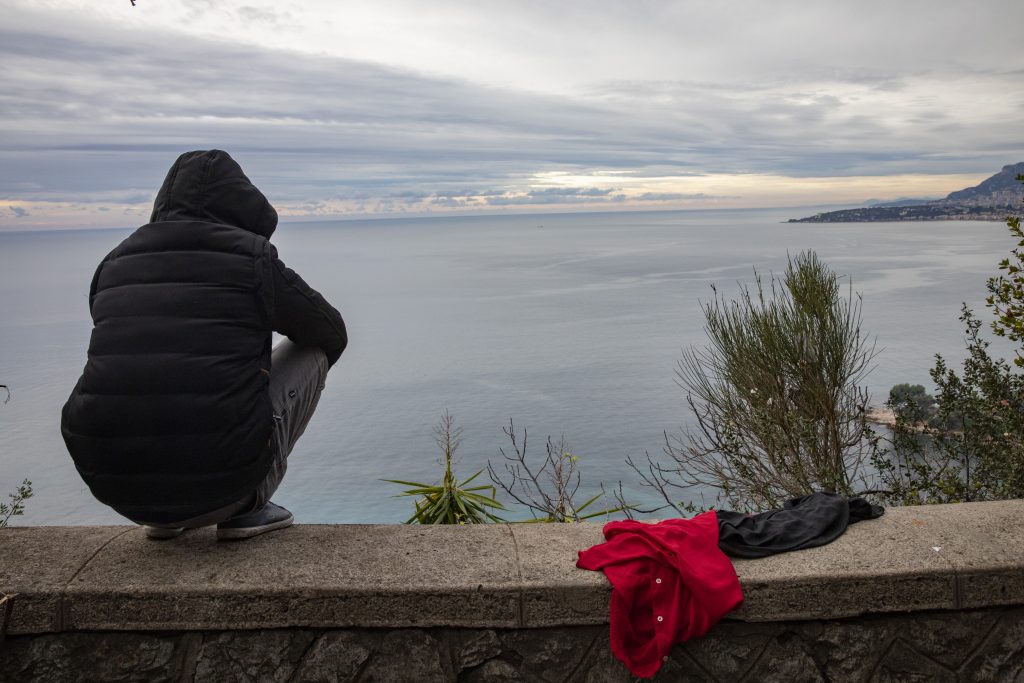
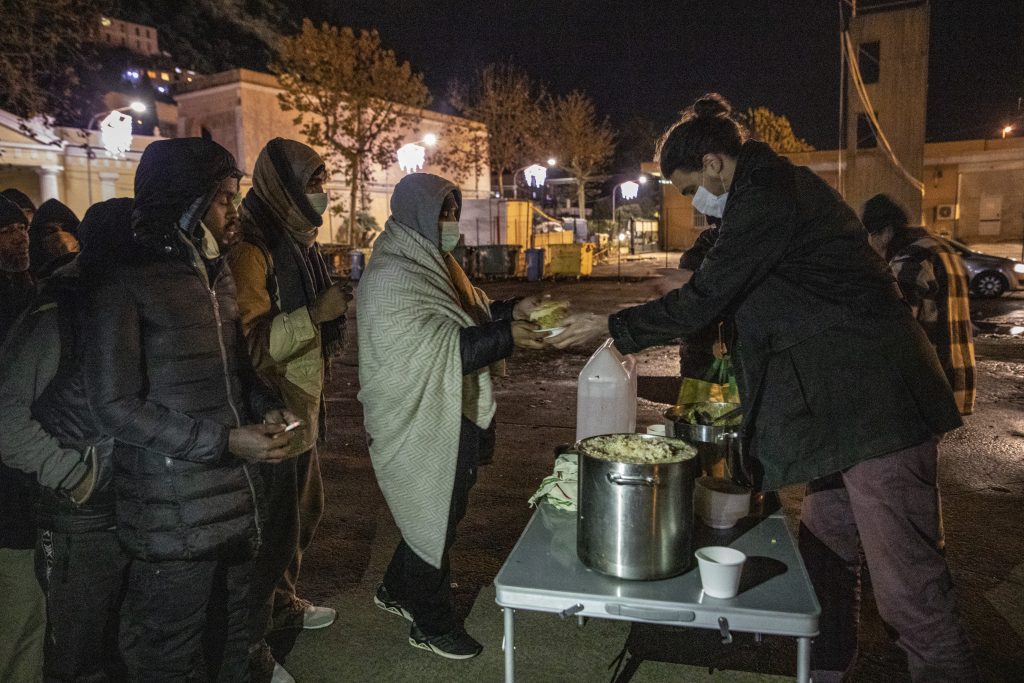
Delia owns a bar near Ventimiglia train station. She opens the doors of her restaurant to migrants and refugees. Filippo, in his sixties and nearing retirement, comes in every day to drink coffee and see if there is a new family to host.
“For the past year, my wife and I have opened the doors of our home,” he says. We’ve already hosted more than 30 families. We do it as a service. We welcome families with children and single women: people who have no form of protection and should never have to sleep on the streets.”
The local Caritas branch, a five-minute walk from the station, provides services including legal advice, meals, clothes and accommodation for families. COVID-19 has had a tremendous impact on these activities.
“We’ve been forced to suspend the shower service and meals are distributed outdoors. After the closure of the transit camp, the situation deteriorated and today public institutions are entirely absent. The people who arrive are tired, they are losing hope. We are worried about the future; if the numbers increase, the situation could become critical,” says Cristian Papini, the director of Caritas in Ventimiglia.
A young couple with a seven-year-old girl were given a place to stay in one of the Caritas apartments. Originally from Ethiopia, the family arrived in Libya in 2018, where they were imprisoned in a detention centre in Kufra for eight months.
In the detention centre, the parents were beaten and tortured in front of their daughter until the church in their home village paid their ransom. Their first attempt to reach Europe followed: after two days at sea they were intercepted by the Libyan coastguard and returned to Libya. After a further four months in a detention centre, they managed to escape and found work as servants, before attempting the sea crossing again.
In October 2020, after three days at sea, they arrived in Lampedusa and then continued their journey, travelling on bus and train, to Ventimiglia.
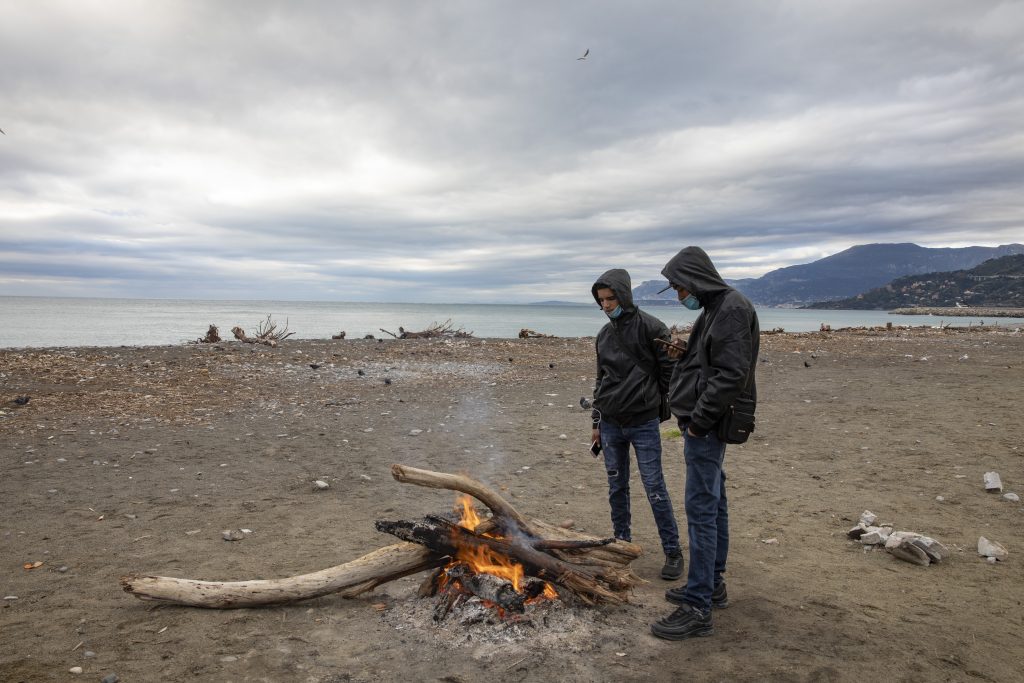
The October flood and the nameless dead
At the beginning of October 2020, severe flooding hit Ventimiglia, and in the days following, 10 bodies were found, eight of which were never identified.
“They were probably people in transit who were sleeping along the river and were swept away by the water,” says Luca Daminelli, an activist working with Progetto 20K.
Every evening volunteers of this network can be found in a parking lot in front of the cemetery, distributing hot meals and clothes to people on the move in Ventimiglia.
“We are able to reach out to people and families in transit thanks to an extensive network of solidarity that has been established in the area,” says Luca. “All the assistance is provided by the voluntary sector. MSF donated us sleeping bags, blankets, shoes and clothes that we distribute to people in transit – all essential items for them to continue their journey during the winter months.”
Oulx
Over the past three years, more than 10,000 people have crossed the Alps at Oulx, in the Upper Susa Valley, to reach France. The COVID-19 pandemic and the lockdown restrictions have led to a decrease in the numbers of people on the move, but without stopping them completely. Over the summer, at least 500 people passed through Oulx, most of them having travelled the ‘Balkan route’. They included Iranians and Afghans as North Africans, who chose this route to avoid the detention centres in Libya and the risk of shipwreck on the Mediterranean Sea.
The ‘Talità Kum’ refuge is located opposite Oulx railway station. Open from 6 pm to 10 am, it is managed by a network of volunteers from Rainbow for Africa and Waldensian Diaconia. A few kilometres further along the road leading to the border, a former roadworker’s house has been occupied for years by a group of activists to provide round-the-clock shelter for people in transit.
“During the winter, the mountain landscape turns into an ice and snow trap for those who try to cross it,” says Piero Gorza, an anthropologist and Piedmont representative of Doctors for Human Rights (MEDU).
The journey begins in the square in front of the station, where buses leave for Claviere, the last Italian town before the border, from where migrants and refugees hope to reach Briançon in France.
“When you walk in temperatures of -15°C, if your feet get wet, you risk your life” says Gorza. “Winter is a critical and dramatic time in which everyone involved needs to work together to save lives. Fortunately, this valley also has strong traditions of solidarity, struggle and resistance, embedded in people’s memories from the years after the war. There have only been five deaths in all these years thanks to the volunteers and activists who provide assistance in the mountains. It’s like giving a lifejacket to someone drowning at sea. It prevents deaths”.
Bolzano
Around 120 migrants were living on the street in Bolzano in mid-December. People are still arriving in the city in the hope of crossing the border, but the Brenner Pass is closed and, compared to before, there are very few attempts to actually cross the border. Around 50 people are living in terrible conditions under the motorway bridge, amidst piles of rubbish, with rats running between their battered tents and with no access to clean water or toilets.
Before the COVID-19 pandemic broke out, people living here could get medical treatment thanks to a mobile clinic and a canteen run by the Volontarius association. As well as basic medical care, people could have a hot meal while sitting in an indoor heated space.
MSF supports Bozen Solidale, providing sleeping bags, blankets, shoes and clothes, which are distributed directly to people outside the reception system.
BOLZANO, DECEMBER 2020
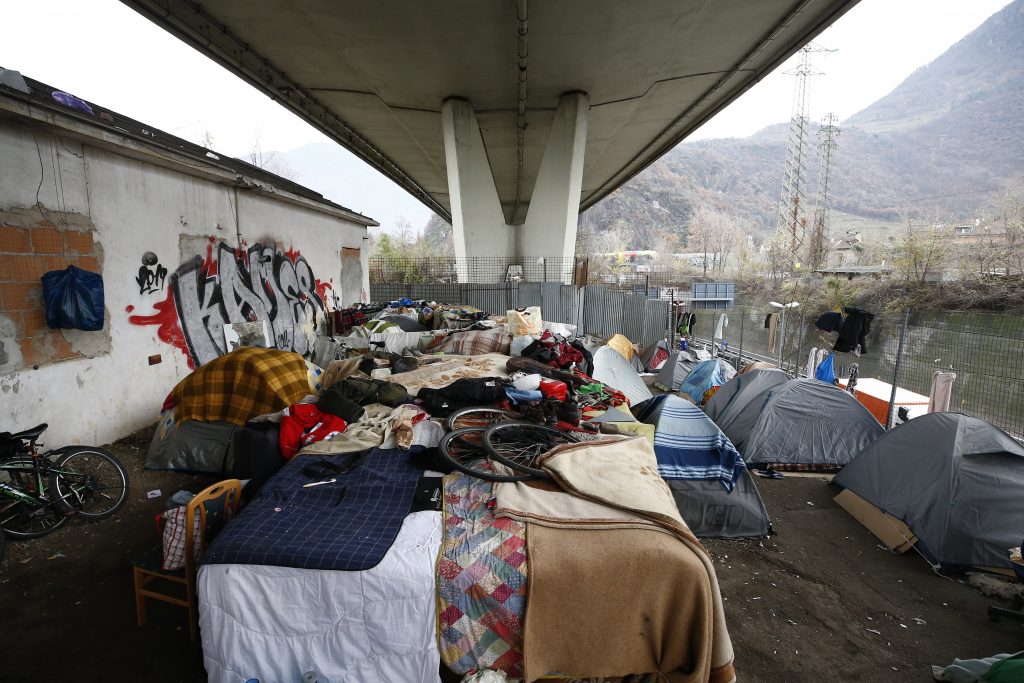
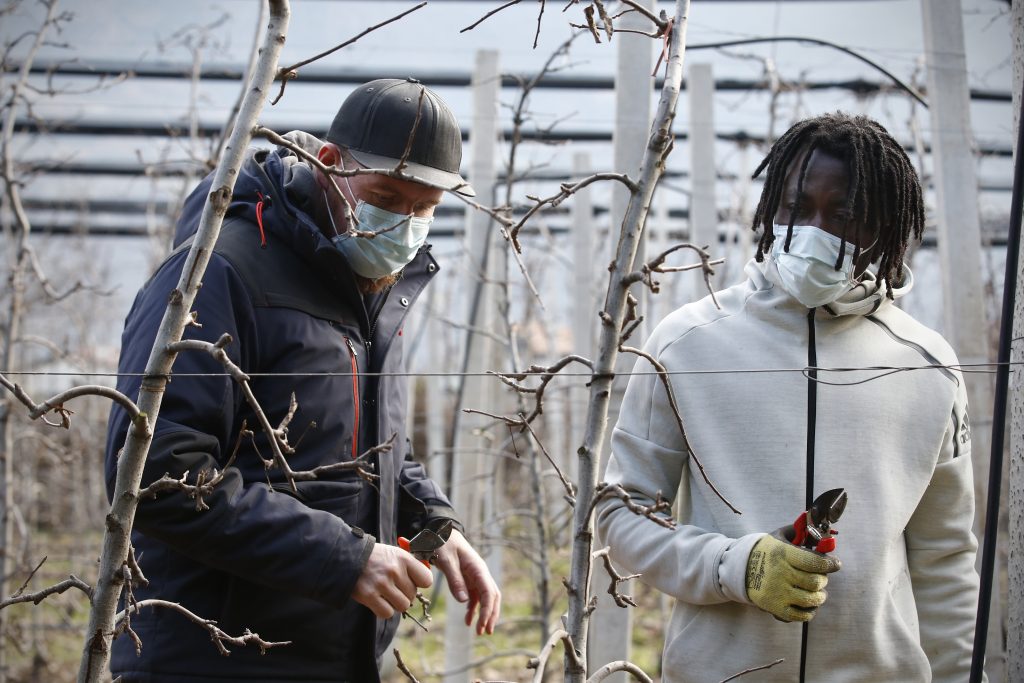
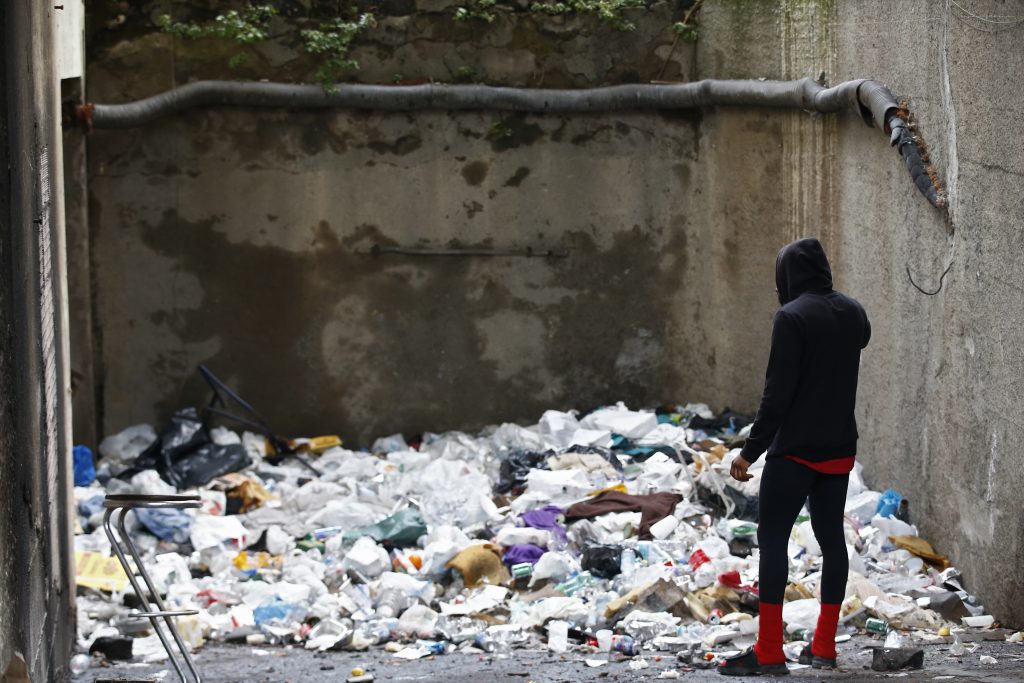
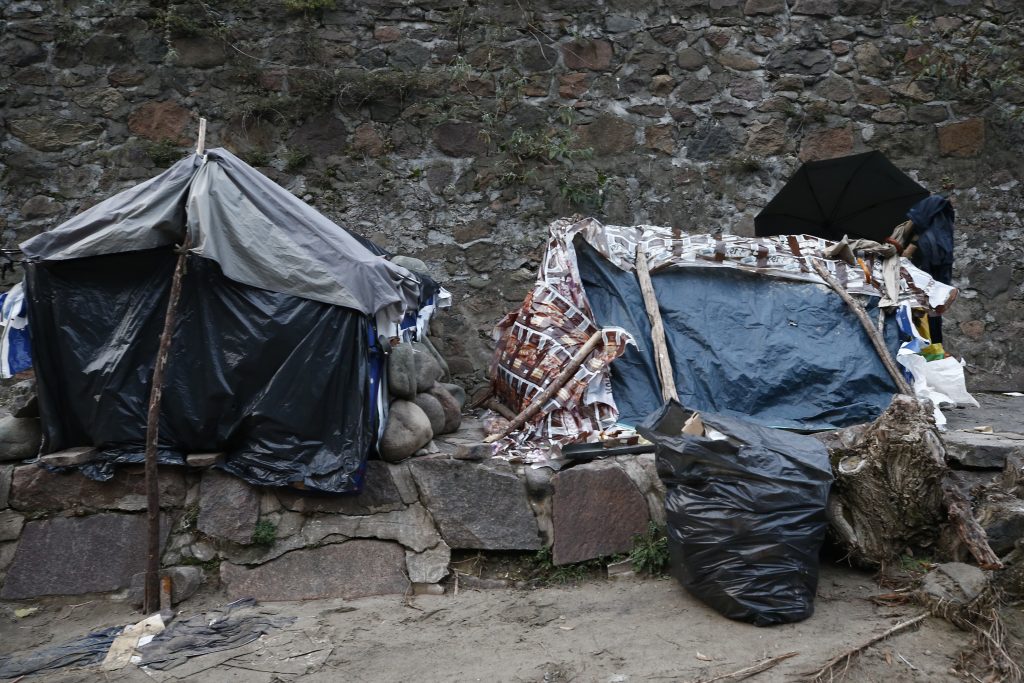
Issifi, originally from Niger, spent some time in Germany and Switzerland, but returned to Italy. He lived on the streets in Bolzano for more than a year until he met Reiner, a farmer who grows organic apples. Reiner invited him to stay on his farm, and Issifi stayed on after apple-picking season was over.
“Getting to knowing his story was important,” says Reiner “It enriched me, and I was struck by his experiences during his journey. None of us can really imagine their suffering and the terrible things they have experienced in the course of their journeys. Yet despite having lived such a hard life, they always have smiles on their faces.”
Trieste
Migrants and refugees coming from Turkey pass through Greece, Serbia, Croatia and Slovenia along the Balkan route. They travel by any means possible, but mostly on foot, and enter Italy via the Trieste border crossing. Men, women and children intercepted along these borders are often turned back, sometimes violently. The treatment to which they are subjected, especially in Croatia and Bosnia, is now well known.
In Trieste, most migrants and refugees stay in the city for fear of pushbacks, which can occur up to 10 km from the border. Some decide to stay on in the city and are welcomed by the Italian Consortium of Solidarity (ICS). Worn-out and dirty backpacks and clothes litter the woodland paths along the border, abandoned because they are no longer usable.
Thanks to word of mouth, which extends beyond borders and languages, many migrants and refugees on the move gather in the garden in front of the railway station in the evenings. It is here that volunteers from Linea d’ombra and Strada SiCura offer hot drinks, food, clothing and, when necessary, treat the physical injuries resulting from people’s journeys. Generally, these are foot injuries due to walking long distances in unsuitable shoes or even barefoot. Many people are robbed and stripped of everything they own in the course of their journey.
Faced with an almost complete absence of state institutions, MSF recognises the irreplaceable commitment of activists, volunteer groups and local communities, often working in isolation, who seek to ensure dignified living conditions and access to guidance and support for migrants and refugees on the move.
However, it is primarily the responsibility of the government to adopt migration policies that guarantee assistance and protection, rather than exclusion and suffering. Inhumane reception conditions, violence and abuses at the hands of the police, and repeated pushbacks at border crossings do not stop people from seeking a life of dignity, but instead cause suffering and major humanitarian consequences. All too often, they create the conditions for even more dangerous routes.
MSF calls on the Italian authorities to put an end to the repeated pushbacks of foreign citizens intercepted at the Italian-Slovenian border. Migrants and refugees are pushed back first to Croatia and then to Bosnia, where they are left to suffer desperate living conditions and systematic abuse.
We appeal to the Italian authorities to ensure that the actions of the police on the border with France, carried out jointly with the French authorities, respect people’s dignity and safety and protect the most vulnerable people, including families, women with children, and unaccompanied minors. We further call on Italian authorities to guarantee adequate reception conditions, assistance and access to medical care in all border areas, with measures that take into account the specific vulnerabilities of this group of people and the limited time they spend on Italian soil.
-
Related:
- Italy
- refugees and migrants











